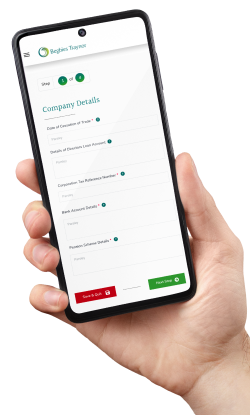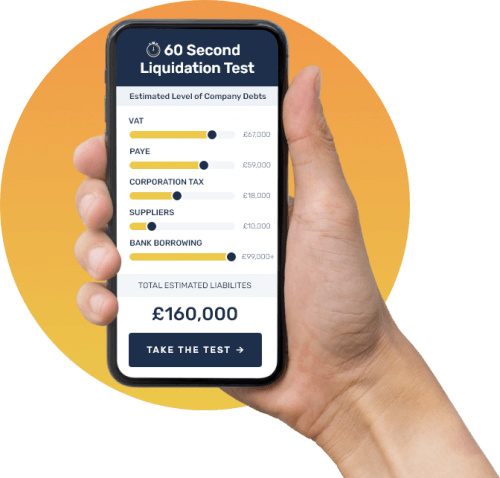Liquidation is a formal insolvency process which brings about the end of an unwanted limited company. Companies with or without debts can enter into formal insolvency proceedings as a way to wind up its affairs and close the company down in an orderly way.
There are three types of liquidation available to companies in the UK:
Whether a creditor is forcing your company into liquidation or you have chosen to wind-up your company affairs, UK Liquidators’ expert team can advise on the best way forward. Whether your company is solvent or insolvent, liquidation is a delicate process and needs to be handled by a licensed insolvency practitioner, of which we have over 100 across the UK.
Concerned about the National Insurance increase?
For the 2024-25 tax year, the rate of employer National Insurance increases from 13.8% to 15% adding yet more pressure onto already squeezed cash flows. If you are worried about the impact this could have on your company’s finances, talk to the experts at UK Liquidators. As licensed insolvency practitioners we can explain your options and help you plot a way forward. Call today on 0800 063 9262.
If your company is struggling to the point that it’s become insolvent and you wish to cease trading and close the company via the correct channels, this is achieved by a formal process called Creditors’ Voluntary Liquidation – known as a CVL.
A CVL is the most common type of liquidation process in the UK and is designed to help directors of limited companies wind up the affairs of the business, and give creditors the best chance possible of recovering the money they are owed.
As part of the CVL process, all assets belonging to the company will be identified before being sold - or 'liquidated' - by the appointed insolvency practitioner. The proceeds from the sale of company assets will then be used to repay outstanding creditors as far as possible. Any company debt remaining after this point will be written off, unless it has been secured by a director's personal guarantee.
The final stage in the liquidation process is for the company's name to be struck off the register held at Companies House. The company will cease to exist as a legal entity once this has been done.
If you have realised the company is insolvent, it is crucial that your company does not take on any further credit agreements or makes preferential payments to certain creditors as this could be deemed, in a liquidator’s eyes, as worsening the position of all your creditors. In the majority of cases, you should not continue trading once you become insolvent; instead, consult with a licensed insolvency practitioner and take professional advice to protect both yourself and your creditors.
Director Redundancy Entitlement – Did you know that as a limited company director, you may be entitled to claim redundancy if your company enters into an insolvent liquidation process? We can point you towards a fully regulated third party who can provide advice on your right to claim director redundancy if this is applicable to your situation. To understand if you are entitled, give a member of our team a call on 0800 063 9262, or email advice@ukliquidators.org.uk.
Liquidation Portal
For Company Directors

Take our 60 second test and find out



Members’ Voluntary Liquidation, usually referred to as an MVL, is the most tax-efficient way of extracting profits from a solvent limited company prior to shutting down the business for good.
If your company has reached the end of its useful life, and there are cash and/or other assets in excess of £25,000 to distribute to shareholders, an MVL is likely to be the best course of action for winding up your solvent business.
In order to enter into an MVL, directors must sign a declaration of solvency which attests to the fact that the business is solvent and able to repay any outstanding creditors (including contingency creditors) within 12 months. A licensed insolvency practitioner is appointed and they will work towards winding up the company and distributing the funds to shareholders.
As with a CVL, the end point of an MVL is when the company's name is struck off the Companies House register and ceases to legally exist.
Start your online liquidation today
If you have decided liquidation is the right option for your limited company, you can take the first step and begin the process online using our online portal. Starting the process is quick, simple, and can be done at a time that suits you. Your information will be submitted to your local UK Liquidators insolvency practitioner who will be with you every step of the way. Click here to start your company’s liquidation online.
As the name suggests, compulsory liquidation is something which is forced upon a company against its will. A compulsory liquidation is ordered by the courts following a creditor's Winding Up Petition.
If a company has debts it is unable to repay, creditors can apply to the courts for a Winding Up Petition to be made against your company. This is the most serious step a creditor can take; they are effectively asking the courts to shut down your company.
Upon receiving a Winding Up Petition, time is truly of the essence if you want to save your company from closure and stop it being forced into compulsory liquidation.
If you have been threatened with a winding up petition and are concerned about the prospect of compulsory liquidation, the first port of call should be to consult with a licensed insolvency practitioner to discuss your options. You can arrange a free initial consultation with one of our local insolvency practitioners for free and immediate advice to help you avoid compulsory liquidation.
If you are considering liquidation for your company, taking expert advice at an early stage is crucial. At UK Liquidators, our team of licensed insolvency practitioners are committed to providing limited company directors with the help and advice they need to make an informed decision.




Looking for immediate support?
Complete the below to get in touch